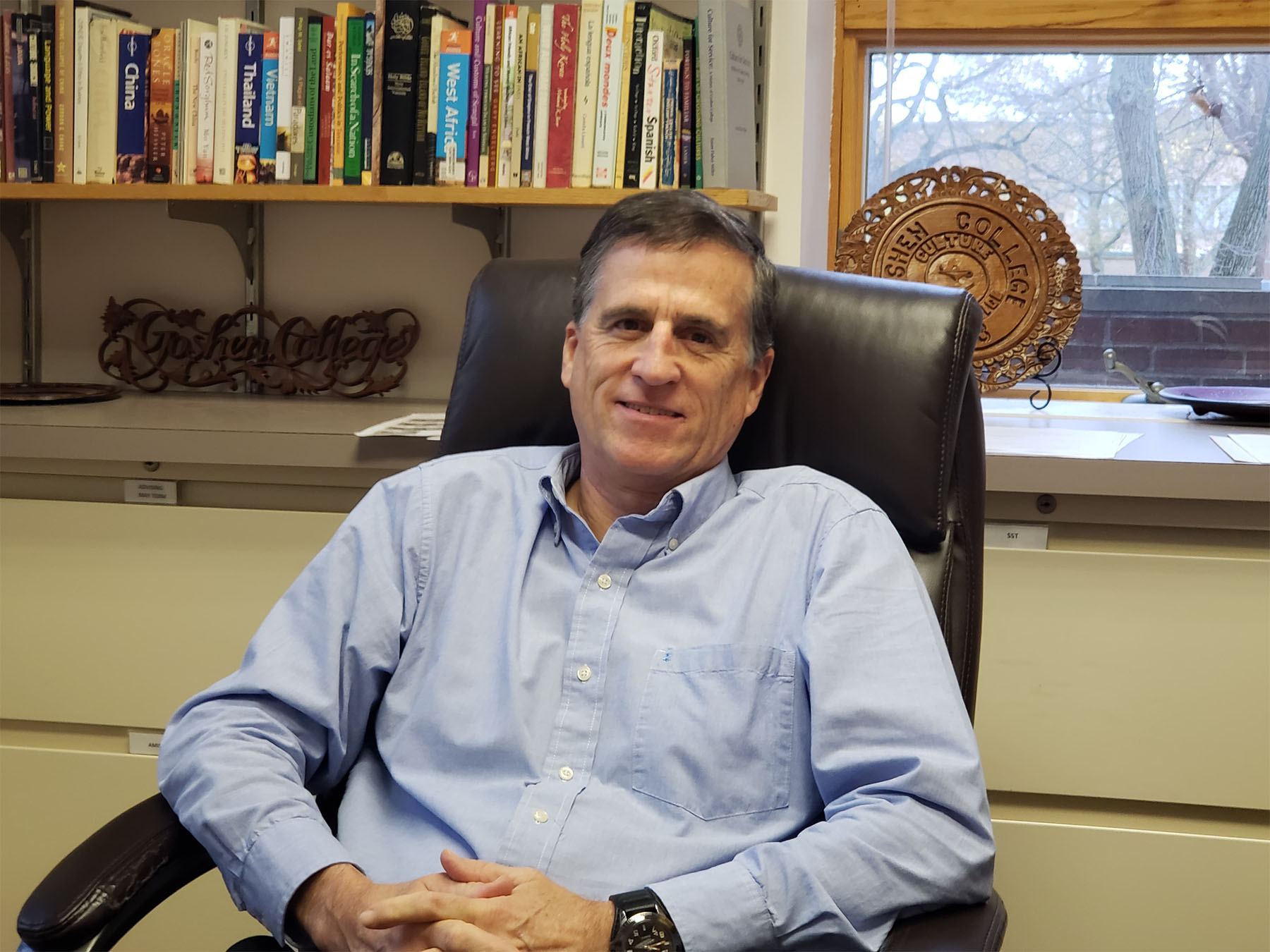Since its inception in 1968, Goshen College’s Study Service Term (SST) has sent over 7,000 students to 24 different countries.
And for the past 15 years, Tom Meyers has worked as director of international education at GC — a role which involves overseeing the SST program and further developing it.For Meyers, a graduate of Goshen College, the SST program has been a big part of his life. Meyers has had the unique advantage of experiencing SST as a student, faculty leader, parent and director.
As director of international education, Meyers has a long list of responsibilities: organizing all the SST units around the world; getting faculty and students prepared for the terms abroad; and working with budgets and safety issues. The list goes on. Meyers said he finds joy in the connections and relationships he has built along the way.
“I like this job, in part, because we have partners all around the world — in Asia, Africa and Latin America — and that means I have relationships with people in many places of the world, and that is the best part of the job: the international connections,” Meyers said.
“I am most proud of the connections that we have around the world with partners,” Meyers said. “People who we truly consider our partners who teach our students, who teach us, who give us the privilege of being in their society for a period of time and learning from them.”
The SST program is something that Meyers wishes more students would take advantage of. “What this program does is allow students to leave this part of the world to learn from and with other people about the larger international community that we all live in and work in,” he said.
“That’s the beauty of it, that’s the idea of it, to open up the world beyond North America to students in Goshen College,” he said.
Although some students may have barriers preventing them from participating in the SST program, he does wish for every student to get the opportunity to experience international education and to understand what impact that can have on their future. Meyers said that he has seen how students’ SST experiences have led them to careers and lives of service, opening doors to students that they had never dreamed were there before.
Meyers wants students to become “global citizens.” For many students, this may be a developing concept. In order to be a global citizen, students should consciously enter the broader world and enrich themselves by doing so, even if SST is not an option.
“[Global citizenship] is having an international identity that supersedes a narrow identity that’s linked to one particular society. It means having a perspective that’s broader than one particular country and having an appreciation for a world that is connected,” he said.
Meyers will be retiring from Goshen College at the end of this year, but he and other faculty, staff and students have been a part of search conferences that have been assessing the strengths and weaknesses of the program, with the goal of working towards an ideal future for international education at GC.
This past September, Jan Bender Shetler, professor of history, was one of the many individuals who participated in the SST Search Conference. Many issues were discussed, in particular, those that are presented to non-traditional students which prevent them from being a part of the regular SST program.
Shetler is well aware of this growing group of students and ultimately wants everyone to have some experience with global education.
“It’s global education, but global is right here in the United States; you don’t have to go outside of the United States to be global,” she said.
“In the current job context, students who have deep experience in another culture and have been able to go across cultures. In that way they have better success in the job market,” she said.
Both Shetler and Meyers want students to understand that SST and international education is not just about traveling but also that a student has had the opportunity to be deeply immersed in a community that they can learn from.
“A lot of students on campus come with some cross-cultural experience, but this is the idea of putting them in a context where you have a chance to reflect on it, to talk on it, to bring your own identity on it, it is about feeling like you have some connection and responsibility beyond nation, to people around the world. We are connected to each other and we are responsible to each other,” Shetler said.



